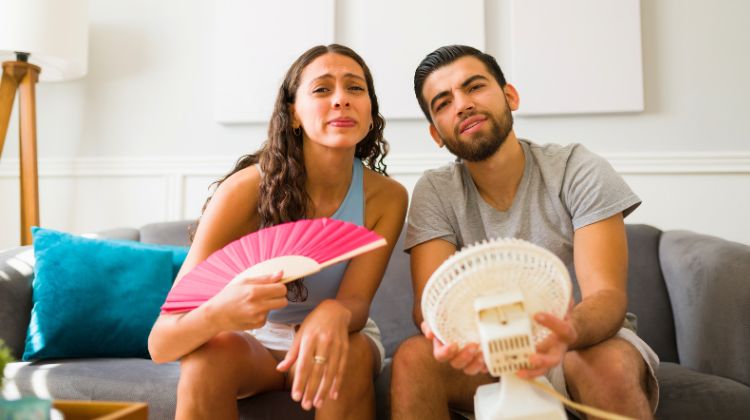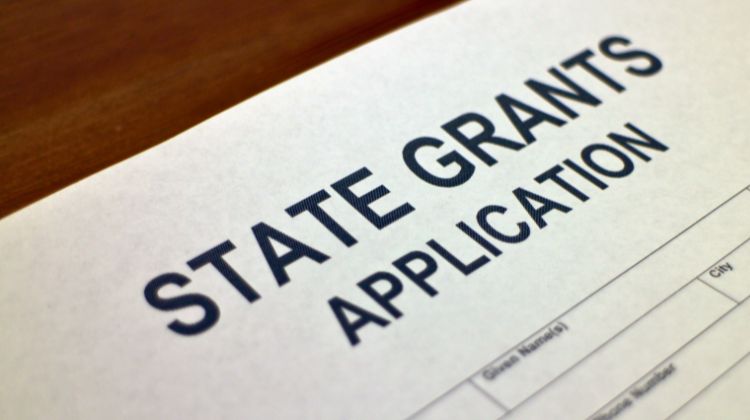When the summer sun beats down, your home should be a safe escape. But when it feels more like an oven, the heat is more than just uncomfortable. It can be a real danger, especially for kids, seniors, or anyone with health problems.
I know how stressful it can be when you need relief but don’t know where to turn. You will learn about different options for getting free A/C units for low income households, because everyone deserves to be safe. We will go through the programs that can help you find this critical cooling assistance and keep your home cool.
Table of Contents:
- The Shifting Landscape of Government Help
- Where to Find Free A/C Units for Low Income Now
- Tapping Into Your Local Community Resources
- Examples of Local Air Conditioner Programs
- What to Do If You Can’t Find a Program
- Simple Ways to Keep Your Home Cooler
- Conclusion
The Shifting Landscape of Government Help
I want to start with the tough news first, just to get it out of the way. Some of the big government programs people have relied on for years are a little less reliable right now. Please don’t let this discourage you, because there is good news and other places to find help.
It’s just that three of the main government resources for cooling help have seen some changes. LIHEAP, the Weatherization Assistance Program, and Medicaid are all facing funding issues or policy shifts. This makes them a bit more complicated to use for getting an air conditioner than in previous years.
LIHEAP Funding Challenges
The Low Income Home Energy Assistance Program, or the LIHEAP program, is a federal block grant that helps families with energy costs. While some LIHEAP funding is available for cooling help, it has become much more limited. The money is tight, and there are no guarantees about future funding from one year to the next.
Each state receives a set amount of funds and decides how to use them, so the available assistance can vary greatly. This particular energy assistance program often runs on a specific program year, with application periods that can be quite short. Missing that window means waiting until the next year, which doesn’t help with the immediate need for summer cooling.
Because of this, some states have already made difficult choices. For example, Pennsylvania announced they will not use their funds for a free unit air conditioner this year. They are focusing only on helping people pay their high summer electricity bills, which makes sense but is frustrating if you need a new unit.
To qualify, eligible applicants must meet income guidelines that are based on household size. The application process typically requires providing required documentation like proof of income, a recent utility bill, and identification for everyone in the home. It is a good idea to gather these documents before you apply to speed things up.
Weatherization Assistance Program (WAP)
The Weatherization Assistance Program (WAP) is another potential source of help for home energy assistance. Its main job is to improve the energy efficiency of homes for low-income families. This can sometimes include repairing or replacing inefficient air conditioning systems.
The primary goal of this energy assistance program is to reduce energy costs for the long term. This means they may be more likely to repair your existing central air or replace an existing wall sleeve unit than to provide a new window unit. The focus is on the whole home’s efficiency.
But this program often has a long waiting list. Getting approved can take a while, and its future funding is also not entirely certain. It’s still a valuable program to look into, but it might not be a quick fix for this summer’s heat.
Changes in Medicaid Coverage
In the past, people with certain heat-sensitive health issues could get free air conditioners through Medicaid. This was a lifesaver for many who needed to stay cool because of a documented medical condition. It was handled at the state level and varied from place to place.
This assistance benefit was often available to those also receiving other aid, like Supplemental Security Income. The idea was that providing an air conditioner was cheaper than paying for an emergency room visit caused by heat stroke. This logic was especially true for those with ssi living situations that might lack central air.
But recent announcements from the Centers for Medicare and Medicaid Services suggest this practice is now being discouraged. This means the option may no longer be available in many states. It’s a tough blow for those who relied on this specific type of medical help to get a unit air conditioner.
Where to Find Free A/C Units for Low Income Now
Now that we’ve covered the challenging news, let’s talk about the good news. Even with government programs scaling back, many nonprofit organizations and local community services are stepping up. They are working hard to fill the gap and help people who are struggling with the dangerous heat.
When you look at this list, just remember that services can be very different depending on where you live. Many of these are large, national organizations, but your local chapter makes its own decisions about program support. It’s always best to call the office nearest you to get accurate information, but this will show you where to begin your search.
Nationwide Non-Profits to Contact
These organizations often run seasonal programs specifically to help people stay cool. You’ve probably heard of them before, but you might not have known they could help with this specific need. Reaching out to your local branch is the best first step to find a cooling assistance program.
- Catholic Charities: This organization often helps people in local communities. They partner with cities and counties to give free air conditioners to low-income households based on monthly income and need. They have active programs in places like New Jersey and Texas, just to name a few.
- The Salvation Army: While they do not have a formal nationwide air conditioner program, many local branches get involved. They often help distribute units during extreme heat waves or community drives. It’s always worth a phone call to your local office to ask what’s available for eligible applicants.
- St. Vincent de Paul: Many local branches offer cooling help. A great example is their Summer Breeze Program in Northern Kentucky. It gives free AC units to people with serious medical needs and also offers fans to anyone who needs one.
- The United Way & 2-1-1: Some United Way chapters run their own cooling programs. But their most powerful tool is the 2-1-1 hotline. This free service can connect you with other local programs that may have the exact assistance benefit you need.
Tapping Into Your Local Community Resources
Sometimes the best help is found right in your own backyard. Beyond the large nonprofits, there are many smaller, local agencies dedicated to serving their communities. These are the places that often know about very specific local efforts that aren’t advertised widely.
Thinking locally can open up a lot of doors you didn’t know existed. It just takes a few phone calls to find out what might be available to you and your family. Start with the offices for human services that are designed to serve people in your situation.
Government and Social Services Offices
If you’re a senior or have a disability, I highly recommend contacting your local Area Agency on Aging. They specialize in resources for older adults and a qualified non-citizen may be eligible for services. They can often refer you directly to a program that provides a cooling assistance benefit.
For families with young children, especially those with needs in early childhood development, the local Children and Family Services office is a great place to ask. They prioritize the safety of kids, and that includes protecting them from extreme heat. This can be especially important for families using child care services.
You can also try calling your county’s general social services office or public health department, as they manage a variety of public welfare programs. They may have information on Temporary Assistance or other cash benefits. Some offices even allow you to apply online, saving you a trip.
If you live in subsidized housing, check with your housing authority. While your rent may say heat included, that does not cover cooling. Some government subsidized housing properties have rules or programs to help residents obtain a sleeve unit or window unit.
Special Help for Veterans
If you are a veteran, you may have access to dedicated resources. Reach out to your state’s veterans department or your county’s veteran services office. They often manage special funds or have partnerships with organizations that can give help that’s not available to the general public.
These offices exist specifically to support veterans. Don’t hesitate to contact them and explain your situation. They may be able to connect you with an assistance program or financial aid very quickly.
Don’t Forget Your Utility Company
This is one of the most overlooked resources out there, but it can be incredibly helpful. Many electric companies have programs to help their customers. These cooling assistance benefits can include giving out free fans, portable air conditioners, or bill credits during heat emergencies.
Some even have special medical accommodation programs. If someone in your home has a documented medical condition that gets worse with heat, you may qualify for special help. This assistance benefit helps by preventing health crises before they happen.
All you have to do is call the customer service number on your bill and ask what programs are available. Be sure to mention if anyone in the home receives Supplemental Security, as that may automatically qualify you for certain programs. Provide your name and email address so they can send you application forms.
Home Repair Non-Profits
Think outside the box and look at home repair organizations too. Nonprofits focused on free home repairs often include safety upgrades in their work. A working air conditioner is definitely a safety issue in a hot climate.
For example, Rebuilding Together has helped people in places like Las Vegas get air conditioners through its home improvement programs. They may focus on repairing an existing central air system or replacing an existing wall sleeve. Removing an old wall sleeve unit and installing a new, efficient one can make a huge difference.
These organizations focus on making homes safe and livable, and a functioning A/C unit is part of that mission. It is a good idea to check for similar groups in your area. They may be able to help with an existing wall installation.
Examples of Local Air Conditioner Programs
To show you what’s out there, I want to share a few examples of local programs we’ve found across the country. This list changes all the time, so check with your local 2-1-1 for the most current information. But this gives you an idea of what these programs look like.
| Location | Program Name | Description |
|---|---|---|
| Kansas City, Missouri | ElderCool Program | Helps seniors and people with documented heart or lung conditions get an air conditioner. |
| Bartlesville, Oklahoma | Cool Room Project | Allows seniors to borrow a free air conditioner for the summer months. |
| Oregon | Cooling Portland | Working to give out thousands of air conditioners to vulnerable residents. |
| Wake County, North Carolina | Cool for Wake | Helps low-income families with respiratory needs stay cool and safe in their homes. |
| Texas (Various) | Multiple Initiatives | Includes the North Texas Air Conditioning Initiative and the Cool for the Summer program in Harris County. |
What to Do If You Can’t Find a Program
I know it can feel defeating if you’ve called around and still can’t find help. Maybe you don’t qualify, or maybe all the programs in your area are out of funds. If that’s your situation, don’t worry, because there are still some other things you can do to find relief.
Finding Local Cooling Centers
During heat waves, most cities and counties open public cooling centers. These are safe, air-conditioned spaces where you can go to escape the heat during the day. Common locations include libraries, community centers, and sometimes churches.
These centers are free for everyone to use. You can find the nearest cooling center by calling 2-1-1 or checking your city’s official website. When searching online, look for official websites, as they are the most reliable sources of information.
Make certain the website belongs to a government organization; you can be sure you’ve safely connected if the URL ends in .gov. Being sure you’ve safely reached the correct site protects you from scams. Getting correct, safely connected information is crucial during an emergency.
Exploring Community Networks
You might be surprised by what you can find through your own community. Local Facebook groups or Buy Nothing groups are places where people give away items they no longer need. People often list working fans and air conditioners when they are moving or upgrading.
Just be cautious when arranging to pick up an item from someone you don’t know. Always try to meet in a safe, public place and bring an additional person with you. This is a great way to find a free or very low-cost unit.
Rebates Can Cut Your Costs
If you decide you have to buy your own air conditioner, make sure you look for rebates. Your energy assistance provider may offer cash back for purchasing an energy-efficient model. You can also check the Energy Star website, which has a tool to find rebates in your area.
These discounts can save you a good amount of money. It might make buying a new unit much more affordable than you thought. A little bit of research before you buy can really pay off.
Simple Ways to Keep Your Home Cooler
Even without an air conditioner, you can use some simple strategies to make your home more comfortable. These tips won’t make your house icy cold. But they can lower the temperature by a few critical degrees.
- Keep your curtains or blinds closed during the day to block the sun’s heat. This is especially important for windows that face south or west.
- Use box fans placed in windows to create cross-ventilation. At night, point one fan blowing in on the cool side of the house and another blowing out on the warmer side.
- Avoid using your oven or stove during the hottest part of the day. Opt for a microwave, slow cooker, or grill outside to keep indoor heat down.
- Try sleeping with a damp washcloth on your forehead or neck. You can also fill a hot water bottle with cold water and stick it in your bed.
- Heat rises, so stick to lower floors or basement levels if you can. Interior rooms without windows also tend to stay cooler.
Conclusion
It’s completely understandable to feel frustrated when help is hard to find. You deserve to be safe and comfortable in your own home, especially during dangerous heat waves. The good news is that you are not alone in this search.
Although some larger government programs have become less certain, community help is growing stronger. Non-profits, local agencies, and even your utility company are potential sources of support. These groups offer a vital cooling assistance benefit for many households.
By exploring these different avenues, you can find options to get free A/C units for low income families. Taking the time to call local charities and your utility company can connect your applicant household with the resources you need. Stay persistent, and you can find the help to keep your family safe this summer.








Reader Interactions